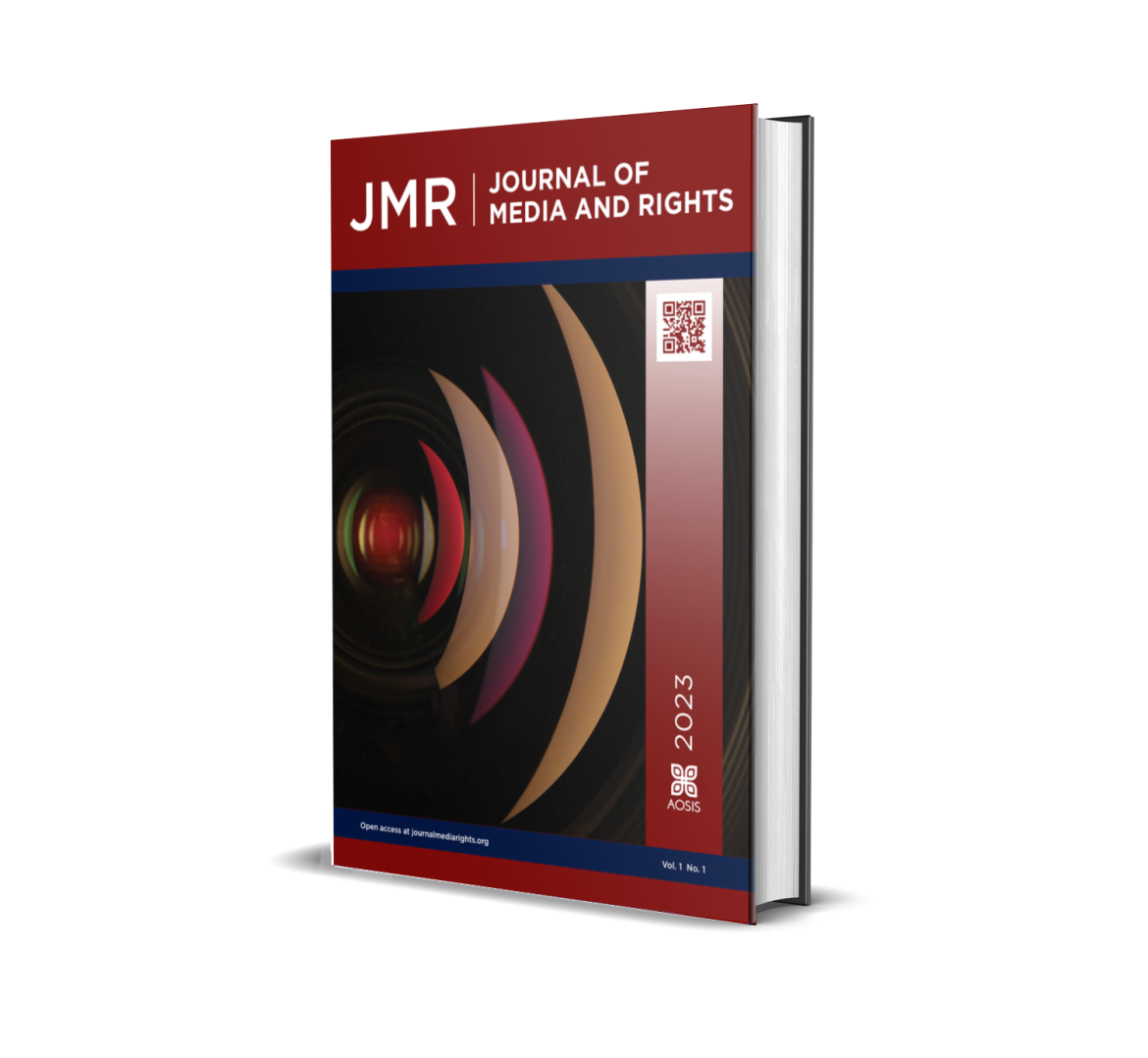The Journal of Media and Rights (JMR) aims to provide an innovative and diverse platform for the presentation and discussion of original research linking media scholarship with rights-based scholarship. This unique linkage is explored in various sociopolitical and cultural contexts in the quest for intellectual understanding of the positive and/or negative impact that evolving media approaches have on the expression and realisation of rights. A core element of JMR is the exploration of rights (human or otherwise) via the close analysis of media texts such as films, television, radio, podcasts, and other forms of online media. In this way, JMR includes cutting-edge discussions on the semiotics, narrative and contextual meaning that can be derived by analysing media texts from a rights-based perspective and vice versa. JMR also examines rights-related concerns connected to the media industries themselves. This includes, for instance, assessing the media industries from a rights-based perspective in order to scrutinise working practices and industry structures. The intention is to in this way contribute to the improvement and development of approaches to producing media that have human rights, sustainability, and conservation messaging as central concerns. Significantly, the scope of the journal’s critical engagement with media discourses on rights includes a platform for practice-based as well as practice-led researchers. Exhibiting such research artefacts alongside critical reflections on those artefacts provides a unique outlet for innovative approaches in media and rights research. JMR thus adds a novel dimension to traditional scholarship in this area while also participating actively in the contemporary media landscape. Moreover, JMR serves an important function in addressing contemporary realities where rights are deliberately restricted – often also with the help of different forms of media. Globally, the sociocultural moment in which we currently live is characterised by the rise of populism, factionalism and deliberate attacks on facts and truth. In several instances, media are being politicised and even weaponised as part of a widespread attack on rights (e.g., reproductive rights, workers’ rights, climate change, indigenous rights, to name but a few). JMR addresses a pressing need to draw attention to these developments and, in so doing, serves as a crucial reminder that media creators and scholars occupy an important position in offsetting those who would see the rights of humans, animals and the environment denied.
JMR is therefore interdisciplinary and welcomes papers that investigate the linkages between media and rights from a variety of perspectives. These may include, but are not limited to, perspectives coming from:
- film studies
- television studies
- communication studies
- journalism
- memory studies
- political science
- international relations
- human rights law
- philosophy
- psychology
- anthropology
- sociology
- cultural studies
- theology.
The thematic scope of JMR is thus broad in so far as contributions consider a form (or multiple forms) of media within the interdisciplinary confines of the PANEL principles of rights-based approaches:
- Participation
- Accountability
- Non-Discrimination and Equality
- Empowerment
- Legality.
LATEST ARTICLES

